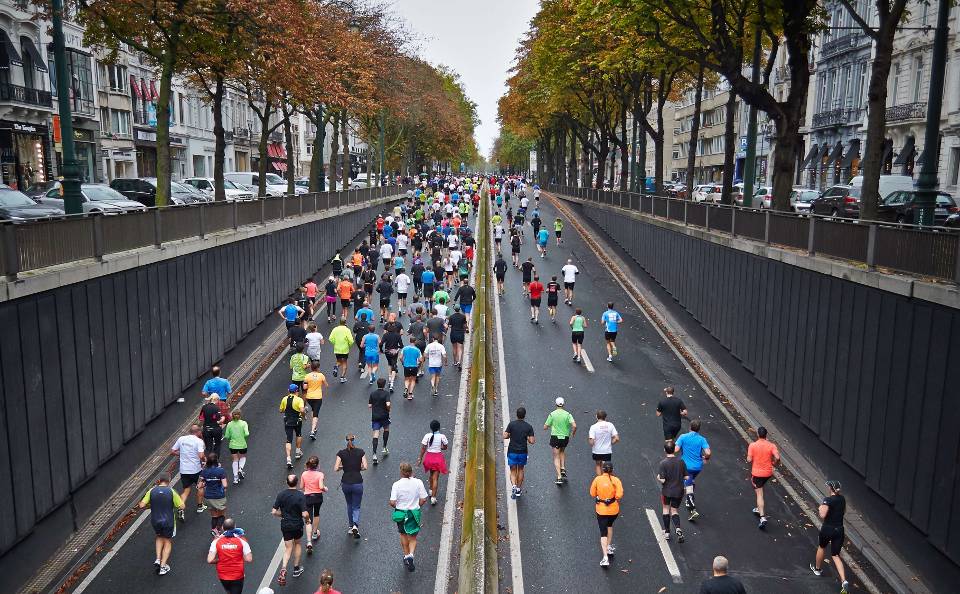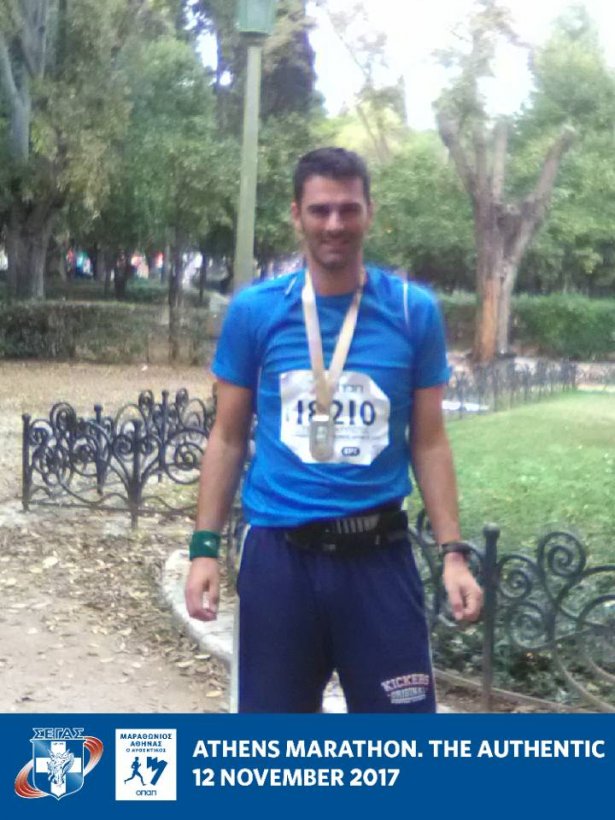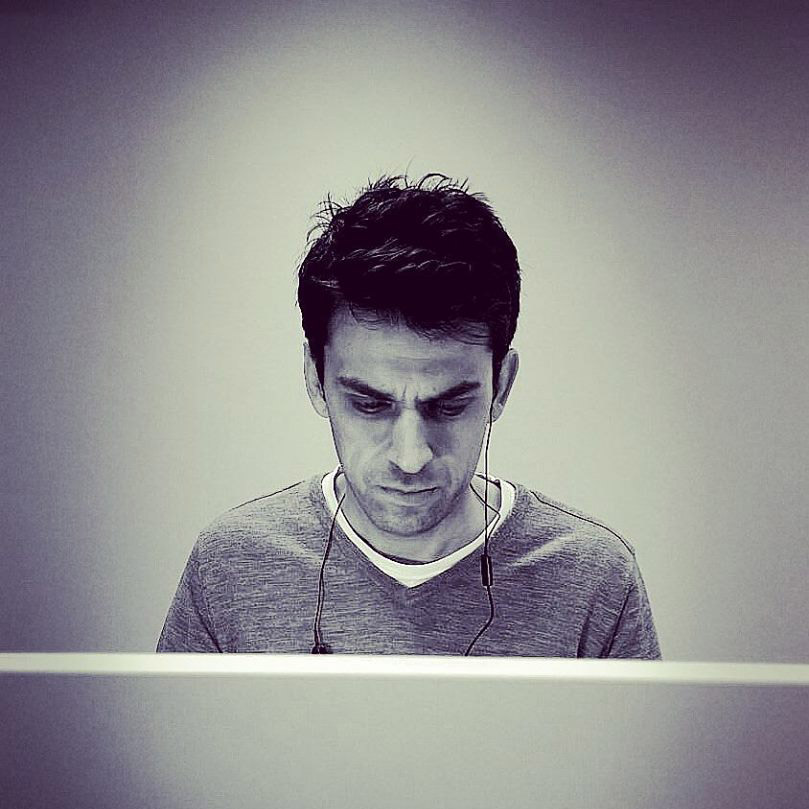When running a startup is like…running a marathon
What’s the difference between running a startup and a marathon? Wait for it… Nope, sorry. There’s no clever punchline. Why? Because this is no joke.

There is no difference! It’s one and the same thing. Well, perhaps you won’t have painful blisters on your feet when you are running a startup. I know what you’re thinking. Using the metaphor of taking on a marathon to running a business sounds a bit cliche. Or passe. Whatever you prefer. But there is a reason for that. It’s because it’s true!
Both are somewhat a voyage of self-discovery.
Each activity offers a huge challenge which involves pulling you well away from your comfort zone. And this is what I want to talk about here. The similarities between the two and what lessons can be learned.
From the outside looking in, being an entrepreneur building and growing a startup is still perhaps one of the most misunderstood ventures. It’s often seen as glamorous, exciting and fun. This is mainly due to the media and press, who mainly talk about the bright side of startups. The romanticism of the start, achieving new milestones and expansion, or latest fundraising rounds.
But let me tell you, while it can be all of those things, for the most part it is a long, hard slog. A test of endurance, which makes you question everything. Your self belief, your stamina, your psychology, and your body. Much like a marathon.
The marathon [startup] man
But what do I know? I’ve never ran a marathon. Nor have I ever ran a startup. However, I do know someone who has. Both! His name is George Kripotos and he is the CEO and Co-founder of Pakia, the newest startup to launch and take part in our Venture Building program.
So, I’m off for a coffee. I’ll leave the floor open to George, who will tell you just how it is.
[Enter George, who immediately hijacks my laptop]
This story, like most stories do, started with a “stupid” decision made during a brief conversation. I say stupid in quotation marks because in the end it wasn’t such a bad idea. Anyway, the conversation went something like this:
Friend: “Will you join me?”
Me: “Sure, it’s on!”
Now, I can’t really remember if I was half-joking when I said those three words. Three words which incidentally came in response to a question about taking part in arguably the world’s toughest marathon. The point is, with those words came my determination to commit to them. And so it began.

Do the things you’re bad at
I was clearly driven by the same force that led to other silly decisions of mine in the past. Like the time I said to myself, “Hey, I’m really bad at communicating with people, I should do sales!” Or the time I decided that I should manage a team at a startup. So what if I struggle most of the time to get myself organized and manage my time effectively. I could go on, it’s a pretty long list. Anyway, I digress.
This time, my “stupid” decision was to choose the sport I’m actually worst at and dislike the most: running. Yes, especially long distance running. So hey, why not run a marathon? Brilliant idea! And why don’t you go the whole hog and choose the most difficult one you can find. Yes, the Athens Classic Marathon, of course!
Fast forward to November 12, 2017 and a total of 922 km later [including all my training], and there I am, entering the beautiful marble-clad Panathenaic Stadium. I can see the finish line. The experience is overwhelming as I cross it. I see my coach, Aris Myrkos, from www.sciencetraining.gr.
Aris: “How was it?”
Me: “Crazy!”
I literally couldn’t think of a more apt word to sum up the whole experience.
Listen to your body, optimize
There are many stories already out there that describe the struggle, the challenge, the pleasure, and the overall experience of preparing and running a marathon. I don’t want to offer something on that. I can only talk about what I have learned.
So what did I learn? Well, during the preparation and the actual race, there are two very important skills that define the quality of your run:
- Listening to your body
- Finding the optimal pace, so that you feel comfortable but not lazy
When you run for recreational purposes, a distance of between 4–5 km seems enough and you naturally have that “optimal pace” feeling. They say that in order to run 10 km you should double the effort, and quadruple it for a half marathon and so on. But this is not true.
During the preparation I realized that there is an optimal point that keeps you running at a good pace, but the endurance cost is minimal, or close to zero. Of course in order to find it, you need to listen to your body, which dictates when it is too slow or too fast. There is no room for mistakes, the marathon is unforgiving. Listening to your body is a must. If you fail to do so, you’ll suffer an injury, and perhaps end up quitting the race. Worse still, in extreme cases you’ll suffer severe injury or even death.
How building and growing a startup is similar
Coming from the startup world, I see that these two skills are most valuable. A startup is like a marathon, the effort is endless. Start with a great (or “stupid” in my case) idea. Build the team, find some initial funding, create the MVP, release. Then, get more investment, break-even, scale up, grow and so on. It never actually ends. It is the ultimate endurance test.
After several failures and a burnout in my health record before this adventure, I now see the importance of the optimal pace. A startup team’s pace is essential, because it is the true indicator of the long term performance. Go too fast and the project will soon be all over the place. But go too slow and it will be too late.
The first step is understanding the team, its weaknesses and strengths, and its highs and lows. Then, teams can be trained, through habits, repetition, challenges, culture, and of course close communication. Yes in between you need to be agile, and its all about short sprints. But, long-term success is more about enduring.
[George gets up from my desk and goes back to his “coding cocoon”, and fair play he doesn’t leave any rubbish behind – thanks for that mate]
So there you have it ladies and gentlemen. Moving a step forward is understanding where you are and understanding the right way to become better. Just like preparing for a marathon.
Teaming up with ScienceTraining
Because we love startups, and marathons. Well some of us prefer the shorter 10km runs to be honest but that is also more than a marathon for some people. Each to their own. This is one of the reasons that this year we have teamed up with ScienceTraining.gr to offer free endurance training coaching for all our employees.
Run (pun intended) by leading marathon/triathlon coach as Aris Myrkos, ScienceTraining offers the very best in fitness coaching for endurance training. If you think about it, the similarities between endurance training and the journey from an idea to startup and then scale up are strikingly similar.
You only have to read George’s story above to confirm that. In many ways, the journey from your couch at home to the Panathenaic stadium finish line via the marathon is quite a journey. And it is much like the journey from the inception of a business idea up to the realization of a scale-up business.
To do both, you need the right coach. For our startups, we have our unique Venture Building program. And now for our staff and partners, we have ScienceTraining.gr.
Here’s to being fighting fit on all counts.
